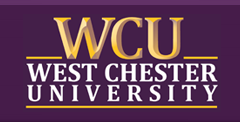Document Type
Article
Publication Date
5-11-2020
Abstract
In light of rising textbook prices, open education resources (OER) have been shown to decrease non-tuition costs, while simultaneously increasing academic access, student performance, and time-to-graduation rates. Yet very little research to date has explored OER’s specific impact on those who are presumed to benefit most from this potential: historically underserved students. This reality has left a significant gap of understanding in the current body of literature, resulting in calls for more empirically-based examinations of OER through a social justice lens. For each of these reasons, this study explored the impact of OER and textbook pricing among racial/ethnic minority students, low-income students, and first-generation college students at a four-year Hispanic Serving Institution (HSI) in Southern California. Drawing upon more than 700 undergraduate surveys, our univariate, bivariate and multivariate results revealed textbook costs to be a substantial barrier for the vast majority of students. However, those barriers were even more significant among historically underserved college students; thus, confirming textbook affordability as a redistributive justice issue, and positing OER as a potential avenue for realizing a more socially just college experience.
Publication Title
Journal of Interactive Media in Education
ISSN
1365-893X
Publisher
Ubiquity Press
Volume
1
Issue
3
First Page
1
Last Page
13
DOI
10.5334/jime.549
Recommended Citation
Jenkins, J. J., Sánchez, L. A., Schraedley, M. A., Hannans, J., Navick, N., & Young, J. (2020). Textbook Broke: Textbook Affordability as a Social Justice Issue. Journal of Interactive Media in Education, 1(3), 1-13. http://dx.doi.org/10.5334/jime.549
